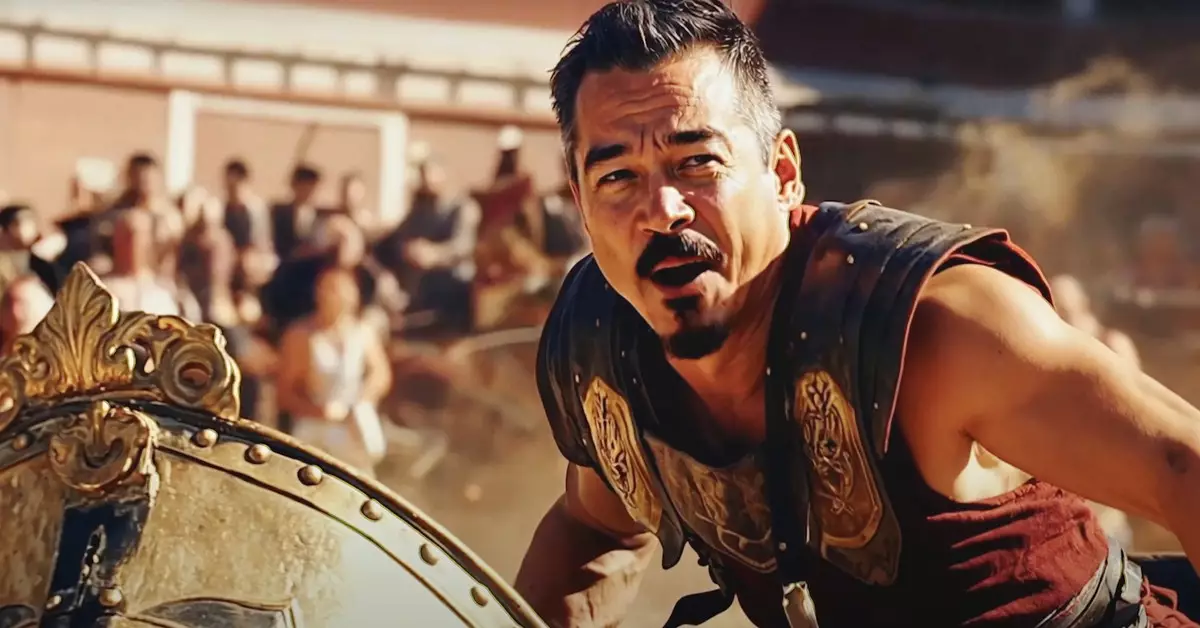The advent of artificial intelligence has introduced unprecedented creative possibilities, leading many companies to explore AI-generated content, including film. TCL’s recent foray into this territory, particularly with its five AI-animated short films, has elicited a mix of intrigue and skepticism. While technology continues to evolve, the current results reveal significant shortcomings that warrant a thorough examination.
TCL’s initial attempt with the short film *Next Stop Paris* showcased the challenges inherent in AI animation. The trailer raised red flags among critics due to issues such as disjointed character movements, dull expressions, and distracting animation effects—elements that suggested the technology was not yet refined enough for storytelling purposes. These shortcomings were not isolated; they reflected a broader trend of AI-generated content often struggling to capture the emotional depth and dynamism that human artists convey. However, TCL’s commitment to further explore this medium led them to release an additional suite of short films, intensifying the scrutiny of their animation capabilities.
Despite an expectation of improvement, the subsequent films have largely disappointed, with varying levels of success and failure. Critically examining each film allows us to gauge not only the technological prowess of AI but also its limitations in storytelling.
Films were reviewed and ranked based on their execution—from those that emerged with a semblance of coherence to those that failed to engage or, worse, entertained in unintended ways. Notably, the film *Project Nexus*, which introduces a premise about teenage empowerment via supernatural forces from a radioactive rock, flounders in execution despite its intriguing idea. The lack of engaging animation undermined its storytelling, leaving audiences confused rather than captivated.
In contrast, *Under the Sun* attempted to weave a fantastical narrative reminiscent of Ray Bradbury’s *All Summer in a Day*, yet its convoluted plotline and stilted animation resulted in a lack of emotional engagement. While the premise itself holds potential for an impactful narrative, the execution faltered, reflecting the disconnect between storytelling and visual representation.
The eclectic mix of genres represented in TCL’s lineup further highlights the unpredictability of AI-generated narratives. For instance, the docufiction-style film *The Avalanche* strived to merge reality and dramatization but fell short due to confusing transitions between AI-generated segments and live-action clips. Rather than creating a compelling viewing experience, it devolved into a disjointed sequence that muddled the emotional weight of a true-life story. The surreal depiction of trauma interrupted by inexplicable imagery only served to alienate viewers.
Conversely, some films ventured into dark humor, as evidenced by *The Audition*. What began as a relatable portrayal of the audition process rapidly escalated into absurdity. The imaginative twists facilitated by AI failed to resonate and instead elicited discomfort rather than laughter. The overlapping themes of identity transformation and the desperation of seeking acceptance showcased the potential for humor but ultimately missed the mark.
While TCL’s experiments illuminate the potential of AI in creative sectors, they also underscore the shortcomings of relying solely on technology for storytelling. The emotional depth, nuanced character arcs, and the intricate understanding of human experiences remain elusive for AI-generated content. Critics have been quick to point out that there’s a distinct lack of understanding of human emotions reflected in these films—a critical component in storytelling.
The varied execution within these short films amplifies the need for a collaborative approach that intertwines human creativity with technological assistance. By leveraging AI as a tool rather than a substitute, creators could potentially enhance their workflows while maintaining the artistry fundamental to impactful storytelling.
TCL’s entry into the realm of AI-generated short films serves as a poignant reminder that while the technology is advancing, it is not yet equipped to shoulder the demands of nuanced storytelling. The clarity and poignancy needed to connect with audiences is currently out of reach. While the potential for innovation is tangible, TCL’s attempts illustrate that more time and refinement are required before AI can truly fill the role of a storyteller. As we stand at the intersection of technology and creativity, the journey ahead remains one of cautious curiosity rather than unreserved celebration.


Leave a Reply